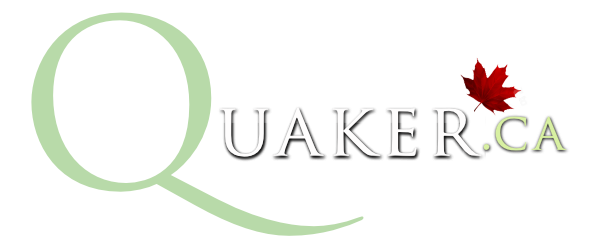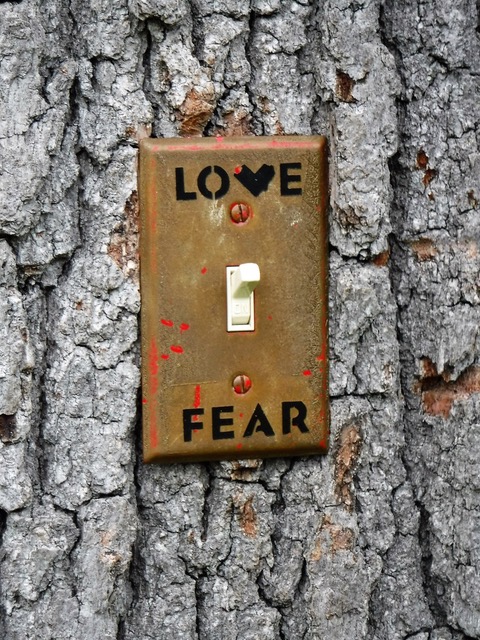This page hosts audio and video recordings of talks given at Quaker gatherings in Canada, usually at our annual gathering, Canadian Yearly Meeting (CYM).
Video
Land Acknowledgment & Welcome
A welcome from Treaty Commissioner Loretta Ross of the Treaty Relations Commission of Manitoba for Canadian Yearly Meeting 2021.
Guided by Ancestors
by JoLee Sasakamoose (2022 SPG Lecture Talk)
JoLee Sasakamoose gave the Sunderland P Gardner lecture at the Quaker 2022 online Canadian Yearly Meeting. In “Guided by Ancestors,” JoLee spoke about integrating Ojibwe teachings with Quaker testimony for social action.
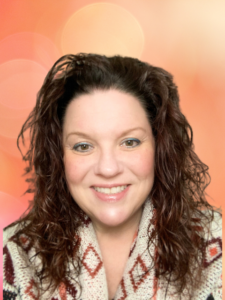 To introduce the talk, JoLee wrote “Numerous teachings, ceremonies, and experiences within Ojibwe spirituality and Quaker testimonies instruct us on how to behave and interact in the world to foster balance and peace and manage our ultimate responsibility to care for Mother Earth (Aski). Quaker testimonies encourage spiritually-led activities that challenge us to assess ourselves and our communities carefully. Meanwhile, the Ojibwe medicine wheel is a multidimensional wheel that contains life lessons and instructions about behaving, interacting, and communicating. I was born at the intersection of both of these traditions. I will talk about how harmonizing these principles provided a supportive atmosphere and a solid foundation in ethics that have protected, guided and safeguarded a life of social activism.”
To introduce the talk, JoLee wrote “Numerous teachings, ceremonies, and experiences within Ojibwe spirituality and Quaker testimonies instruct us on how to behave and interact in the world to foster balance and peace and manage our ultimate responsibility to care for Mother Earth (Aski). Quaker testimonies encourage spiritually-led activities that challenge us to assess ourselves and our communities carefully. Meanwhile, the Ojibwe medicine wheel is a multidimensional wheel that contains life lessons and instructions about behaving, interacting, and communicating. I was born at the intersection of both of these traditions. I will talk about how harmonizing these principles provided a supportive atmosphere and a solid foundation in ethics that have protected, guided and safeguarded a life of social activism.”
Dr. JoLee Sasakamoose is an Anishinabe (Ojibwe) from Michigan and Ontario with membership in M’Chigeeng First Nation and is an active citizen of Ahtahkakoop Cree Nation in Saskatchewan. She is affiliated with Red Cedar Friends in Michigan and Western Half-Yearly Meeting in Canada. Dr. JoLee is the Wellness and Research Director of the Muskiki Muskwa Medicine Bear Healing Lodge and Peer Advocacy Services part of the Indigenous Wellness Research Community Network (IWRCN), a partnership with Wellness Wheel Medical Clinic.
Quaker Leadings & Our Calling in these Times
by Alastair McIntosh (CYM 2020 Talk)
Recorded Wednesday, August 12
The Coronavirus has been a wake up crisis of our time, “a basic call to consciousness”, to borrow an expression from the Haudenosaunee “Address to the Western World” of 1977. It sits enfolded in a wider constellation of crises, or turning points, that include democracy, race relations and indigeneity, and coming on relentlessly, climate change. What can Quakers do and be? Should we merely add our weight to the voices of non-religious organisations that carry these interconnected concerns? Or might our tradition give us particular insights and experience that the wider world might value to be shared? Are we fit for purpose for the purposes to which the Spirit might call us in this century? What roots can we draw from, and what branches might bear fruit?
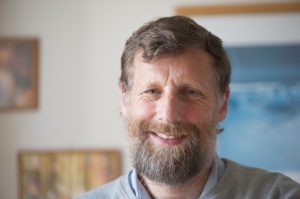 Alastair McIntosh (Glasgow Meeting) will be known to some Canadian Friends for his delivery of the Sunderland P. Gardner lecture on PEI in 2015, entitled, Decolonising Land and Soul: a Quaker Testimony. A Scottish activist best known for work with land reform, he is an honorary professor at the University of Glasgow and the author of books including Soil and Soul: People versus Corporate Power, Poacher’s Pilgrimage: an Island Journey, and to be launched in the UK the day after he delivers this lecture, Riders on the Storm: The Climate Crisis and The Survival of Being.
Alastair McIntosh (Glasgow Meeting) will be known to some Canadian Friends for his delivery of the Sunderland P. Gardner lecture on PEI in 2015, entitled, Decolonising Land and Soul: a Quaker Testimony. A Scottish activist best known for work with land reform, he is an honorary professor at the University of Glasgow and the author of books including Soil and Soul: People versus Corporate Power, Poacher’s Pilgrimage: an Island Journey, and to be launched in the UK the day after he delivers this lecture, Riders on the Storm: The Climate Crisis and The Survival of Being.
Defunding Criminal Justice
by Quakers Fostering Justice (CYM 2020 Talk)
Defunding Criminal Justice: Transforming, Abolishing, and What Comes Next? From Quakers Fostering Justice, part of Canadian Friends Service Committee Joy Morris, Lethbridge Worship Group, Calgary MM John Samson Fellows, Winnipeg MM Dick Cotterill, Halifax MM Recorded Wednesday, August 12, 2020
The Black Lives Matter movement has focused public awareness on the systemic racism and broad harms that are built into our existing criminal “justice” systems. “Defund the police!” has become a slogan. The criminal justice system has lon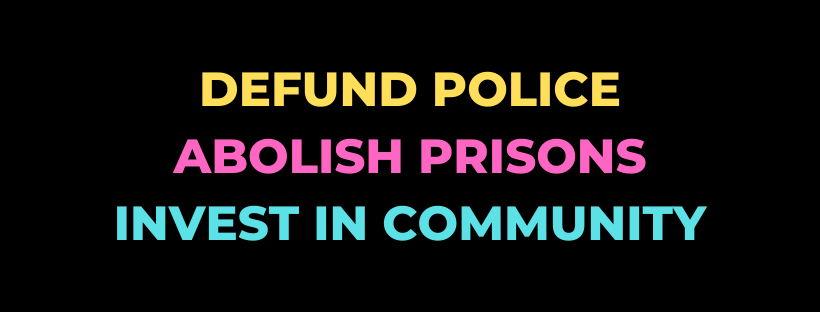 g been an area of concern for Friends, and this public dialogue presents an exciting opportunity to make real changes. Members of CFSC’s criminal justice program committee (Quakers Fostering Justice) will present a brief history of Canadian Quaker concerns with the “justice” system, along with some of the alternative models that have been used or are currently being explored.
g been an area of concern for Friends, and this public dialogue presents an exciting opportunity to make real changes. Members of CFSC’s criminal justice program committee (Quakers Fostering Justice) will present a brief history of Canadian Quaker concerns with the “justice” system, along with some of the alternative models that have been used or are currently being explored.
A Learning & Reconciliation Journey
by Daniel Allen (CYM 2020 Talk)
Two Row on the Grand: A Learning & Reconciliation Journey
with Daniel Allen (Kitchener Area MM)
Recorded Tuesday, August 11, 2020
A highlight of Daniel Allen’s Truth and Reconciliation journey has been his involvement in “Two Row on the Grand.” This is a symbolic renewal of the Two Row Wampum treaty made more than 400 years ago between the Mohawks and the Dutch. It stated that both nations would paddle down the “river of life” on parallel paths, as friends close enough to help each other, but not so close as to disrupt each other’s path.
Over the last four years, participants—both Indigenous and non-Indigenous—have canoeed and kayaked together, taking nine days to paddle the Grand River from Cambridge, Ontario to Port 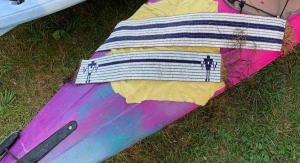 Maitland on Lake Erie. Each day included planned teachings, such as land-based teachings at an Attawandron village site, on-site camping at Kana:ta Village cultural center in Brantford, and paddling into a Pow Wow on Six Nations Reserve.
Maitland on Lake Erie. Each day included planned teachings, such as land-based teachings at an Attawandron village site, on-site camping at Kana:ta Village cultural center in Brantford, and paddling into a Pow Wow on Six Nations Reserve.
In this presentation, Daniel shares images and stories from this journey. He speaks about the relationships that have developed and deepened over these four years. A focus will be on the spiritual fruits of these relationships and how they ripple onward in his life.
Colonialism & Jubilee
by Steve Heinrichs (2019 Bible Study)
At the 2019 Yearly Meeting of Canadian Quakers, Steve Heinrichs presented on “The Cost of Colonialism, the Joy of Jubilee: Re-Imagining Christian Identity and Practice in Canada.”
Steve is a settler Christian from Winnipeg, Manitoba — Treaty 1 territory and the homeland of the Métis Nation. The director of Indigenous-Settler Relations for Mennonite Church Canada, Steve is a student of activism who loves to march with his partner, Ann, and their children Izzy, Aiden, and Abby.
Steve challenged us to grapple with the ways settler colonialism is rooted in the biblical and Christian tradition, asking “Can the Bible become a tool of liberation in the cause of the oppressed?”
Steve moved on to outline two visions for dealing with the injustices of colonialism. The reformist vision of an inclusive, equal-opportunity Canada entails including Indigenous people in mainstream society, with greater equality and respect for Indigenous histories and cultures. This is fine, Steve argued, but not enough. We must embrace a radical vision, returning enough land and power for Indigenous nations to be self-sufficient, changing our government and economic structure to create a more just country.
The biblical basis for the return of land is the ancient Hebrew vision of land return of Jubilee, Steve explained.
Palestine-Israel, Nonviolence, and F/friends
by Maxine Kaufman-Lacusta (2017 Quaker Study)
The CYM 2017 Quaker Study, “Palestine-Israel, Nonviolence, and F/friends” was led by Maxine Kaufman-Lacusta, author of Refusing to be Enemies: Palestinian and Israeli Nonviolent Resistance to the Israeli Occupation (refusingtobeenemiesthebook.wordpress.com). It took place at Ottawa Monthly Meeting on the weekend of October 13-15, 2017.
The study weekend featured a lecture on Friday night by Maxine, a series of workshops throughout Saturday, and a panel discussion on Sunday. From this page, you can watch a playlist of the whole thing – or choose individual videos, grouped by subject.
Playlist of Complete 2017 Quaker Study on Palestine/Israel
Friday Lecture on Palestine-Israel
Maxine’s presentation on Palestine-Israel is shown below in five parts.
Saturday Workshops & Reflections
The first excerpt from Saturday workshops showed some of the reflections, concerns, and hopes that participants shared:
This second excerpt from the Saturday workshops shows some of the participants’ reflections on the documentary O Little Town of Bethlehem. This film gives in-depth profiles of three nonviolent activists in Israel-Palestine: one Jewish, one Christian, and one Muslim.
The third workshop discussed “Solidarity or Joint Struggle.”
The final Saturday workshop tackled “Normalization & the Pitfalls of Dialogue.”
Sunday Panel of Experts
Sunday’s panel on Palestine-Israel is shown below in nine parts, broken down by presenter.
Resources for Further Learning
Those wanting to learn more on Palestine-Israel should look into these select resources recommended by Maxine.
Books
Popular Resistance in Palestine: A History of Hope and Empowerment by Mazin Qumsiyeh (Pluto Press, 2011). A summary of Qumsiyeh’s important book is at qumsiyeh.org/popularresistanceinpalestine
The Politics of Protest: The Israeli Peace Movement and the Palestinian Intifada by Reuven Kaminer (Sussex Academic Press 1996). Written by an Israeli historian who is also a long-time activist, this thorough examination of Israeli peace groups active during the first intifada includes several accounts of nonviolent actions and analysis of the “family feud” between the more politically-engaged or militant “critical left” and its more “moderate” sister groups.
The Road Map to Nowhere: Israel/Palestine since 2003 by Tanya Reinhart (Verso Books, 2006). As the title suggests, this book is mainly about how “under cover of diplomatic successes, Israel is using the road map to strengthen its grip on the remaining occupied territories.” The final chapter gives a fascinating and detailed account of the first three years of Palestinian-led joint nonviolent struggle centred on the apartheid wall in the West Bank.
Refusing to be Enemies: Palestinian and Israeli Nonviolent Resistance to the Israeli Occupation by Maxine Kaufman-Lacusta (Ithaca Press, 2011). This book is an interview-based study that presents the voices of over 100 practitioners and theorists of nonviolence, the vast majority of them either Palestinian or Israeli. They reflect on their own involvement in nonviolent resistance and speak about the nonviolent strategies and tactics employed by Palestinian and Israeli organizations, both separately and in joint initiatives.
Boycott, Divestment, and Sanctions? A Quaker Zionist Rethinks Palestinian Rights by Steve Chase (Pendle Hill Pamphlets, 2017). A review in the October 2017 Friends Journal concludes: “If you feel compelled to back the Israeli state as an essential protector of the Jewish people, read this pamphlet, from someone who knows and emphasizes with your perspective, to probe further into the complex story of Zionism. If you have firmly thrown your lot in with the Palestinians, read to better understand the history and nuance of Zionism and to keep from the tendency to demonize Jews. If you are deeply perplexed about the whole conflict, take this opportunity to travel with a clear-headed and compassionate Quaker who has committed to a journey through this challenging territory toward ever-greater integrity and truth.”
Films
Little Town of Bethlehem tells the story of three men: an Israeli fighter pilot, a Christian Palestinian, and a Muslim Palestinian who all adopt the route of nonviolent resistance. littletownofbethlehem.org
Budrus is an award-winning feature documentary film about the unarmed movement to save the village of Budrus from destruction by Israel’s Separation Barrier. www.justvision.org/budrus
The Wanted 18 incorporates live action footage with stop motion animation to tell the curious story of 18 cows who became symbol of freedom and resistance, providing milk for the Palestinian residents of Beit Sahour so that they would not rely on Israeli producers. Soon the illegal cows, cherished by the Palestinians, were being sought by the Israeli army as a threat to security. streamingmoviesright.com/us/movie/the-wanted-18
Websites
“Faces of Hope: Learn About the Palestinian-Israeli Conflict” by the American Friends Service Committee (AFSC). As example of a way today’s Friends are supporting nonviolence by both Palestinians and Israelis, see afsc.org/resource/faces-hope-learn-about-palestinian-israeli-conflict
“Publications” by the Israel/Palestine Mission Network. Excellent Presbyterian Church resources on Palestine and Israel like Steadfast Hope and Zionism Unsettled can be ordered from www.israelpalestinemissionnetwork.org/main/study-resources/publications
“Thoughts on normalisation in the Israel-Palestine conflict” by Rifat Odeh Kassis. Kassis is a Palestinian intellectual, activist and board member of the Alternative Information Center (AIC). This article offers a clear definition of normalization with examples of what sorts of otherwise well-meaning projects are actually forms of normalization: www.no2brandisrael.org/thoughts-on-normalisation-in-the-israel-palestine-conflict/
“Canada and Israel: The Business of Militarism,” Quaker Concern article by Sara avMaat. quakerservice.ca/wp-content/uploads/2016/08/Quaker-Concern-Summer-2016.pdf
Want More?
For an even fuller list of resources, you can look the thorough list Maxine sent out to participants in the Study:
Recommended Follow-up Readings for Quaker Study 2017 (DOC)
Falling into Grace
by Steve Fick (2017 SPG Lecture )
Death will inevitably make us an offer that we cannot refuse – to surrender into the vastness of a power that is beyond our ability to comprehend. In the meantime, our daily life offers us ongoing opportunities to begin that process of surrender – to “die before we die,” and in so doing, to awaken to a deeper aliveness – a “falling into grace” that turns our mortality into a spiritual companion.
Our Quaker ancestors considered death to be a spiritual event that involved the whole community. When we hide death away, or treat it primarily as a medical event to be managed by professionals, we discourage the dying from doing the profound soul work they need to do as they prepare to enter into this great mystery. As well, the living are robbed of what the dying process might teach them.
Quaker Testimonies & the Bible
by Kate Johnston (2016 Bible Study)
Quaking with Grace & Joy in Modern Times
by Maggie Knight (2016 SPG Lecture)
Maggie Knight gave the Sunderland P Gardner lecture at the Canadian Yearly Meeting in Camrose Alberta, 2016.
In “Continuing Revelation: Quaking with Grace and Joy in Modern Times,” Maggie spoke about transforming ourselves, transforming the Religious Society of Friends, and transforming our world.
Speaking to assembled Friends, she said, “And so, what do we mean when we talk about ‘continuing revelation’? It is the commitment to ongoing discernment, to the belief that the divine will continue to unfold its wisdom to us if we listen, that our faith is an ongoing practice and journey. It is the belief that our faith continues to evolve, rather than stemming from a static religious text. It allows us to embrace and lead social change in our time, beyond what Fox and Penn and Fell could have imagined. This belief in continuing revelation is the reason I’m a Quaker.”
When discussing self-transformation, Maggie shared some of her experiences with workaholism, activist burnout, and ways to foster rest, space, and healthy boundaries in our lives. When discussing transforming the Religious Society of Friends, she touched on leaning into the discomfort, journeying through conflict, healthy boundaries and deeper discernment. She concluded by offering six ideas on what Quakers have to offer an increasingly secular world.
Maggie grew up on unceded Coast Salish territory in Victoria, BC. She’s a member of Vancouver Island Monthly Meeting and has sojourned with Meetings in Montreal, Halifax, and Vancouver. A third generation Quaker of British extraction, she became involved with Friends after attending Camp NeeKauNis in her early teens. She has worked on restorative justice and Indigenous rights with Canadian Friends Service Committee and recently served as Clerk of Canadian Young Friends Yearly Meeting and the CYM Determining Priorities and Envisioning Change Working Group.
A social and climate justice activist since her teens, Maggie studied Environment and Economics at McGill University and served as President of McGill’s undergraduate student union during the 2011-2012 Quebec student strike. She was progressive political non-profit Leadnow.ca‘s first Managing Director, building a distributed national campaigning organization while navigating the joys of 4 time zones and 17-staff-person calls via Google Hangouts. Now 27, she works as the BC Civil Liberties Association‘s new Operations Manager.
In 2015, she married her long-time partner Nat Egan-Pimblett (now Nat Knight) under the care of Vancouver Island Monthly Meeting. They live in Vancouver with their very talkative cat.
The slides from the talk are available here:
quaker.ca/wp-content/uploads/2016/08/Continuing-Revelation-SPG-lecture-2016-Maggie-Knight-reduced-file-size.pdf
Decolonising Land & Soul
by Alastair McInstosh (2015 SPG Lecture)
In the Sunderland P. Gardner Lecture lecture at Canadian Yearly Meeting 2015, the Scottish Quaker Alastair McIntosh shared unique experiences that spans the Maritime provinces of Canada, Scotland and France.
“Decolonising Land and Soul: a Quaker Testimony” explains how Alastair engaged in a campaign starting in In 1991 to prevent the biggest roadstone quarry in the world from being located in Scotland’s scenic Outer Hebrides. He drew in crucial support from the Mi’Kmaq First Nations on Cape Breton Island. Afterwards, until 2013, he served unpaid on the Sustainability Stakeholder Panel of the Paris-based Lafarge, the company that ethically withdrew its quarry proposal.
In 2005 Alastair also travelled to Digby Neck on the Bay of Fundy to help with a similarly successful campaign against a superquarry proposed by Clayton Concrete of New Jersey. Alastair’s sharing of this experience will explore imperatives of Quaker witness for today. He will touch on spiritual experience and the cross as the supreme symbol of nonviolence in our times.
His books include “Soil and Soul” and, jointly with colleagues in Native Studies at the University of Saskatchewan, “Radical Human Ecology.” He holds a visiting professorship at Glasgow University, a divinity fellowship at Edinburgh, and has twice previously lectured at the University of Prince Edward Island on land reform and liberation theology.
War as Disease
by Dale Dewar & Bill Curry (2014 SPG Lecture)
In the Sunderland P. Gardner Lecture lecture at Canadian Yearly Meeting 2014, Dale Dewar and Bill Curry bring their scientific and philosophical wisdom to bear on the global malaise of people and the environment, exploring what we can do to work toward a more just, balanced and sustainable world.
In “Making the Diagnosis, Changing the Prognosis,” they speak of war as a disease, allowing us to consider diagnosis, etiology, pathology, and treatment. Given the tremendous costs of war, not only in human lives but in the health of our planet, how can we allay the costs by turning our efforts to prevention?
Simplicity
by Mark Burch (2014 Quaker Study)
Mark Burch delivered the five-part Quaker Study series at the 2014 Canadian Yearly Meeting gathering in Winnipeg, MB on the topic of Simplicity. Since much of the violence in the world is structural in nature and is imposed on our behalf on distant others whose suffering is out of sight and therefore out of mind, Mark urges us to reduce it by cultivating personal and regional self-reliance through simple living. He explores how our lives have become encumbered, the spiritual roots of simplicity, and how we may regain it.
2014 CYM Quaker Study Series w/Mark Burch, Part I |
Video |
2014 CYM Quaker Study Series w/Mark Burch, Part II |
Video |
2014 CYM Quaker Study Series w/Mark Burch, Part III |
Video |
2014 CYM Quaker Study Series w/Mark Burch, Part IV |
Video |
2014 CYM Quaker Study Series w/Mark Burch, Part V |
Video |
2014 CYM Quaker Study Series w/Mark Burch, Powerpoint |
Video |
The text of this talk is also available at:
quaker.ca/publication/cqls-pamphlet-come-all-ye-who-are-heavily-cumbered/
The End of the World & the Beginning of Quakerism
by Ben Pink Dandelion (2013 Quaker Study)
Quaker scholar Ben Pink Dandelion led the Quaker Study at Yearly Meeting 2013 on “The End of the World, the Beginning of Quakerism, and What Happened Next.” The sessions outlined the key elements of early Quaker thought, explored how changes over three-and-a-half centuries came about, and asked, “What are the challenges today and hows we can meet them?”
Ben is Professor of Quaker Studies at the University of Birmingham, UK. His books include The Quakers: A very short introduction (2008) and Living the Quaker Way (2012).
The I Don’t Know Place
by Caroline Balderston Parry (2013 SPG Lecture)
Caroline Balderston Parry gave the keynote address for the 2013 Canadian Yearly Meeting, a talk known as the Sunderland P. Gardner Lecture.
In “The I Don’t Know Place: Holy Spirit With Me Always,” Caroline explores the place of uncertainty in our spiritual lives. She weaves together song, poetry, excerpts from a Quaker’s journal, and further wisdom from many sources, threaded throughout by awareness of “Holy Spirit with me always.”
As she says, “When we sink into the spaciousness of Spirit, we are more integrated, more in touch with our true selves, our selves at our glorious best.”
Audio
Making Room for Spirit
by Arthur Larrabee (2018 SPG Lecture)
The 2018 Sunderland P. Gardner lecture, “Making Room for Spirit,” was delivered by Arthur Larrabee of Central Philadelphia Monthly Meeting.
Listen to the mp3 audio on the player below:
Click here if the player doesn’t show or play in your browser. 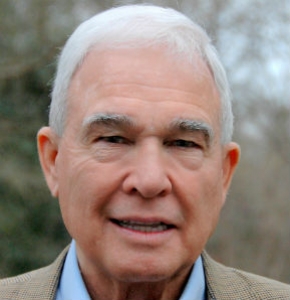
The talk explores spiritual practices which we can use to make room for Spirit in our lives.
“God and Spirit are everywhere present,” Arthur explains,” but we get caught up in patterns of living that make it difficult to access Spirit and spiritual energy. For many of us, there is ‘no room in the inn’ for Spirit.”
“As a Quaker, three spiritual practices which I have found helpful in deepening my spiritual journey are the practice of dissolving attachments, the practice of ‘dying’ into fear, and the practice of embracing paradox. In my talk I share my experiences with these spiritual practices, how they have come into my life, and how I have used them to make room for Spirit.”
The Future of Religion & Quakerism
by Jeff Dudiak (2017 Yonge Street Half Yearly Meeting)
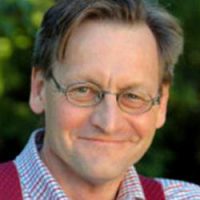 Jeff Dudiak, the speaker at Yonge Street Half-Yearly Meeting in October 2017, is an Associate Professor of Philosophy at The King’s University College in Edmonton. He was born of Ukrainian parentage and grew up in a Friends’ Meeting in the Niagara Peninsula, which declined to join Canadian Yearly Meeting (CYM) at the time of unification in 1955 because it feared that CYM would not be sufficiently Christocentric. He has been a member of Edmonton Monthly Meeting for many years.
Jeff Dudiak, the speaker at Yonge Street Half-Yearly Meeting in October 2017, is an Associate Professor of Philosophy at The King’s University College in Edmonton. He was born of Ukrainian parentage and grew up in a Friends’ Meeting in the Niagara Peninsula, which declined to join Canadian Yearly Meeting (CYM) at the time of unification in 1955 because it feared that CYM would not be sufficiently Christocentric. He has been a member of Edmonton Monthly Meeting for many years.
Jeff gave three lectures at Yonge Street Half-Yearly Meeting, which you can listen to here:
“Does Religion Have a Future?”
Click here if the player doesn’t show or play in your browser.
“The Future of Quakerism”
(Starts with a half minute of silence.)
Click here if the player doesn’t show or play in your browser.
“The Essence of Quakerism”
(Starts with a half minute of silence.)
Click here if the player doesn’t show or play in your browser.
The End of the World & the Beginning of Quakerism
by Ben Pink Dandelion (2013 Quaker Study)
The End of the World & the Beginning of Quakerism (2013 Quaker Study)
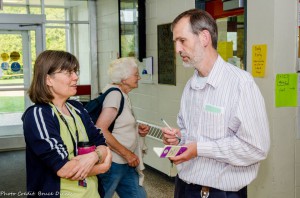 Quaker scholar Ben Pink Dandelion led the Quaker Study at Yearly Meeting 2013 on “The End of the World, the Beginning of Quakerism, and What Happened Next.” The sessions outlined the key elements of early Quaker thought, explored how changes over three-and-a-half centuries came about, and asked, “What are the challenges today and hows we can meet them?”
Quaker scholar Ben Pink Dandelion led the Quaker Study at Yearly Meeting 2013 on “The End of the World, the Beginning of Quakerism, and What Happened Next.” The sessions outlined the key elements of early Quaker thought, explored how changes over three-and-a-half centuries came about, and asked, “What are the challenges today and hows we can meet them?”
Ben is Professor of Quaker Studies at the University of Birmingham, UK. His books include The Quakers: A very short introduction (2008) and Living the Quaker Way (2012). These talks are also available as video.
Belonging and Faith & Practice
by Dana Mullen (2012 SPG Lecture)
In her 2012 SPG Lecture “Belonging and the Practice of Our Faith”, Dana Mullen wove together her  history of becoming a member of the Society of Friends with the story of the development of the first Canadian book of Faith & Practice, which serves as reference to our values, witness, and tradition.
history of becoming a member of the Society of Friends with the story of the development of the first Canadian book of Faith & Practice, which serves as reference to our values, witness, and tradition.
The new Canadian Faith & Practice was finished in August 2011, with thirteen years passing from considering its feasibility to completion. Dana was a member of the small committee that shepherded the project through many calls for contributions, drafts, and revisions. She credits this process with informing and inspiring her thinking about belonging. “Who we are, whose we are, and by whom are we gathered?” She hopes that we will use the book as a resource for work with inquirers into the Quaker way and for our selves as a basis for exploration of our beliefs, belonging, and behaviour.
Click here if the player doesn’t show or play in your browser.
Radicalizing Spirit
by Jeff Dudiak (2012 Quaker Study)
 The Quaker Study at the 2012 Canadian Yearly Meeting was “Radicalizing Spirit: The Challenge of Contemporary Quakerism” by Jeff Dudiak.
The Quaker Study at the 2012 Canadian Yearly Meeting was “Radicalizing Spirit: The Challenge of Contemporary Quakerism” by Jeff Dudiak.
Jeff is an Associate Professor of Philosophy at The King’s University College in Edmonton. He grew up in a Friends’ Meeting in the Niagara Peninsula and has been a member of Edmonton Monthly Meeting for many years.
George Fox and other early Friends “opened up” the Christianity of their day in an ambiguous way. Was their revelation a renewal of something old or the introduction of something new, a deepening or a departing? The tensions among our current, diverse “branches” of Friends hang, to some large degree, on which interpretation we prefer. But is this a forced, and false, choice? These studies are an attempt to trace out a dynamic that runs through the Bible to earlier Friends and into our own times that, far from trying to resolve this tension, requires it as essential to the “radicalizing spirit” that is Quakerism at its best.
Here are the five lectures. Click to play, or right-click (or command-click on a Mac) and hit ‘save file as,’ to save to your computer.
The Moral Economy
by Marilyn Manzer (2011 SPG Lecture)
Marilyn Manzer delivered the  2011 Sunderland P. Gardner lecture on “The Moral Economy” to a full house at the Fountain Performing Arts Centre at King’s Edgehill School on Wednesday, August 10th. In describing her life-long journey of concern on this issue, she wove together threads of economics, history, philosophy, music and beauty and presented an alternative vision to our current greed-based economy.
2011 Sunderland P. Gardner lecture on “The Moral Economy” to a full house at the Fountain Performing Arts Centre at King’s Edgehill School on Wednesday, August 10th. In describing her life-long journey of concern on this issue, she wove together threads of economics, history, philosophy, music and beauty and presented an alternative vision to our current greed-based economy.
1. Introduction to the Lecture |
mp3 |
2. Introduction to Marilyn Manzer |
mp3 |
3. Marilyn’s Introduction |
mp3 |
4. Personal History |
mp3 |
5. Big Question Finding Answers |
mp3 |
6. Further Education |
mp3 |
7. Finding More Answers |
mp3 |
8. Break-Sarangi music by Sara Nasr |
mp3 |
9. An Unsustainable Economy |
mp3 |
10. Right Relationships |
mp3 |
11. Beauty |
mp3 |
12. How Can I Keep From Singing? |
mp3 |
13. Thank You, Applause |
mp3 |
